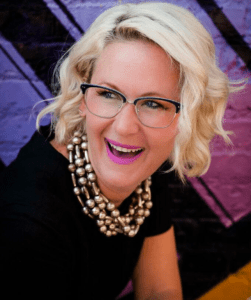The Southern Baptist Convention has made headlines not only in Baptist circles but in secular publications in the days after this year’s annual meeting. In addition to Critical Race Theory, the media has been reporting on the SBC’s commitment to investigate sexual abuse allegations and on the new resolution against abortion regardless of context or health of the mother.
It’s important to note that the SBC should be praised for its decision finally to take appropriate action regarding allegations that the SBC’s Executive Committee and those influencing it have not responded appropriately to knowledge of sexual abuse. It also is important to note that women and girls comprise the majority of victims who are abused, just as women could be harmed by the SBC’s new resolution against abortion.
These two topics, which most directly affect women’s bodies, were discussed and decided on largely by men. It’s a tale as old as time in both religious and secular circles. If a woman’s body is involved, there’s likely a man, or quite a few men, with some thoughts and restrictions to impart.
“If a woman’s body is involved, there’s likely a man, or quite a few men, with some thoughts and restrictions to impart.”
There’s a trend not only in the SBC but in the larger universal church where the desire of some to control women’s bodies can be justified through popular theology. This theology is founded in Augustinian concepts of blaming Eve for sin, specific Pauline passages, and lingering Puritanical beliefs — all of which shame female bodies and claim a fundamental hierarchical difference between men and women.
This theology that justifies the control of women’s bodies is imbedded in the topics of abortion and gender-based violence.
It is far too simplistic to assume that this kind of theology leads to or somehow creates a breeding ground for abuse. But some aspects of these popular theologies can be twisted to foster an environment where abusers can more easily evade accountability and consequence for their actions. This is because these theologies claim the honor of men and the protection of ministry are of higher value than the personhood of a woman.
It’s also not just about abortion
While abortion restrictions and widespread sexual abuse make for horrifying yet flashy headlines, they are not the only ways women are being harmed in religious settings. The same kind of attempt to control women’s bodies is subtly manifested when women experience negative health outcomes as a result of exclusion from religious leadership.
A recent study by the American Sociological Association examined the correlation between structural sexism in Christian churches and women’s negative health. While previous research found that participation in a religious community offers health benefits to congregants, this is one of the first studies to test the limitations of this claim.
“Women only experience a health benefit from religious participation when they attend religious institutions that are gender inclusive and allow women to hold meaningful leadership roles within the congregation.”
The study found that attending structurally sexist institutions created an overwhelmingly negative effect on women’s health. The results “indicate that women only experience a health benefit from religious participation when they attend religious institutions that are gender inclusive and allow women to hold meaningful leadership roles within the congregation.”
The study judged the level of sexism in a congregation by a point scale demonstrating how many or few leadership opportunities were open to women, including “teaching co-ed classes, preaching at a main worship service, serving on the governing body, and being the head clergyperson/leader.”
The findings show that “alienating women from even rudimentary forms of institutional power appears to be particularly damaging to physical health.”
Her pastoral role was limited by gender

Beth Schwartz
This was the experience of Beth Schwartz, who left her job as “women’s minister” in an SBC megachurch after patriarchal structures in the church took a toll on her mental, physical and emotional health.
Schwartz’s experience in ministry can be described as controlled and restricted. Although she was a spiritual leader in her community, her pastoral role was limited on the basis of her gender. In an interview with Baptist News Global, she recalled not being allowed to participate in certain meetings, to be alone with men, or take on the title of “pastor.”
While in seminary, Schwartz became increasingly frustrated that she could not be ordained even though she was doing the same work as her ordained male counterparts. She had the education and the calling, but she was not given the credentials to marry, bury or baptize the people in her community.
She started to question her own calling, saying: “I remember at 35 praying, ‘God you must have created me wrong. I’m a speaker, a spiritual leader, but I can’t join the work.’” She noted, “Even as a strong, powerful woman, a strong, powerful body of men can turn your true north.”
As a nurse of 23 years before beginning congregational ministry, Schwartz noticed when her health took a hit after an extended period of time working in a patriarchal environment. She left her position at the church to preserve her health and is now working on a Ph.D. in nursing on the topic of how religious fundamentalism has negative health effects on women and people in the LGBTQ community.
That is a relatively untapped field beyond the recent ASA study. Although there’s a large body of research on the benefits of religion, the reckoning that some sects of religion may harm the health of women, queer folks and other excluded populations is largely unexplored. It’s important to recognize the positive health impacts of religion, but researching “the underbelly of what might bring detriment to people” is equally needed.
Schwartz believes she would have been a pastor from the beginning of her career if she had seen examples of other female pastors who “went before her.”
Instead of pursuing nursing, Schwartz believes she would have been a pastor from the beginning of her career if she had seen examples of other female pastors who “went before her.” Her decision to leave church work was based partly on the knowledge that by staying she remained a part of the patriarchal problem and was setting a poor example for the women who came behind her.
Churches supportive of women but won’t hire one
Personally, I grew up in a progressive Baptist circle where I always took the concept of women in ministry for granted. But even in that context, I saw few examples of support for women in ministry actually put into practice beyond the tokenization of a few female pastors. Rather, this was an ideal we did little to live up to.
The reality is that regardless of the context, there were very few examples of female pastors who “went before” any of us. This is reflected by the fact that currently, only about 15% of U.S. congregations are led by a woman, as documented in the American Sociological Review.
It would be easy to hear Schwartz’s story and assume this critique only applies to conservative or fundamentalist traditions. But patriarchal concepts to control and restrict female bodies are so deeply ingrained in aspects of popular theology that even “moderates” and “progressives” struggle to put ideals of gender equality into practice.

Summer Caniglia Rice
Summer Caniglia Rice, who is in her second year of residency at the University of North Carolina at Chapel Hill, experienced the difficulty of finding an actual position in congregational ministry even though she was seeking a position in moderate and progressive Baptist churches.
In an interview, she recalled that she was cultivated in leadership roles and encouraged to go to seminary and seek ordination. However, when she asked specific churches if they might call her to serve as a pastor, the answer was no. “I was told the congregation was not ready for a woman. But they supported me to be the pastor of another church.”
Rice felt the irony of allowing women to be ordained but refusing to hire them for ministry positions. She also noted how her own mental health was affected at this time: “There was a season where I was dealing with depression and anxiety because I’d been encouraged as a leader and felt called but felt like I was left hanging when I was given limitations on that calling.”
Ultimately, she stopped searching for congregational ministry opportunities in order to pursue hospital chaplaincy. She explained, “I went to chaplaincy because I saw it as a way to live out my calling to minister and serve people — but also I just don’t have to deal with a lot of the gender bias that I did in a congregational setting.”
Narratives harmful to women
Rice’s experience sadly is not unusual. According to the ASA study, “after becoming more egalitarian for more than two decades, gender role attitudes among U.S. adults plateaued during the mid-1990s, suggesting a stalled gender revolution.” These attitudes not only stalled a revolution and continue to exclude qualified women from leadership positions but are actively harming women’s health.
These attitudes not only stalled a revolution and continue to exclude qualified women from leadership positions but are actively harming women’s health.
At the recent annual conference of Baptist Women in Ministry, Executive Director Meredith Stone preached about hope and new mercies for women “who are called by God and yet face dismal prospects to live out that call. For women who are called ‘sweetheart’ or ‘Jezebel’ or told they should wear superglue for lipstick. For women who face sexual, physical, emotional or spiritual abuse at the hands of a theology that tells them they are less than human.”
Whether accidental, purposeful or subconscious, the narratives perpetuated around female bodies that seek to control and confine are directly harmful to women. These narratives blindly oppose abortion without exception and can be twisted so far that they justify or cover up the abuse of women for the sake of preserving the honor of men. They also can be so insidiously intertwined into public theology that they deny equal opportunities for women, creating a pattern of negative mental, physical and emotional health.
These kinds of narratives must be stopped in all forms. The health benefits from participation in religious activities cannot coexist with this theology. More importantly, the hope of the gospel cannot coexist with patriarchal theologies that harm and control women.

Laura Ellis
Laura Ellis currently serves as a Clemons Fellow with BNG. She recently graduated from Boston University School of Theology with a master of divinity degree. She is originally from Abilene, Texas.
Related articles:
Q&A with Meredith Stone about Baptist Women in Ministry
I knew the truth about women in the Bible, and I stayed silent | Opinion by Beth Allison Barr
It’s time to ‘untangle the embedded patriarchal strongholds,’ BWIM leader declares


